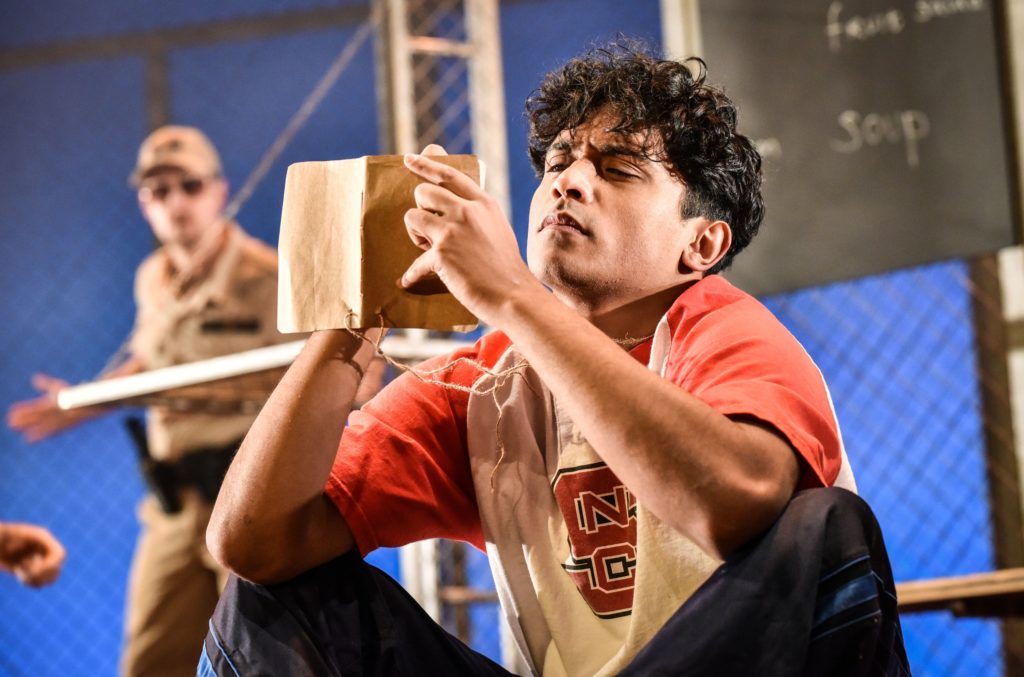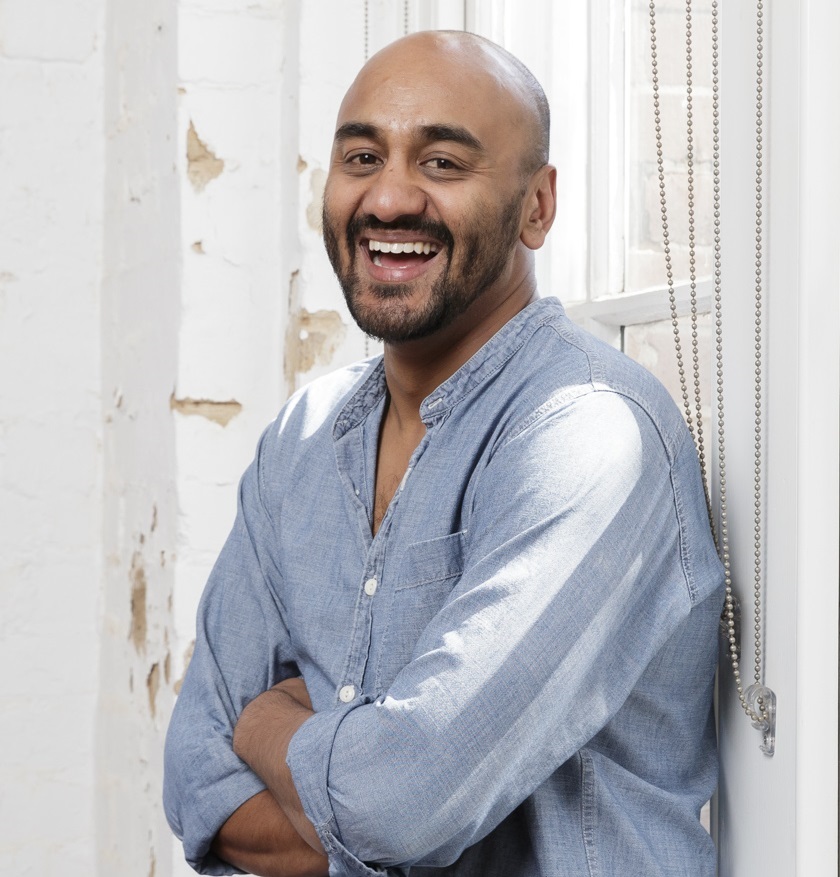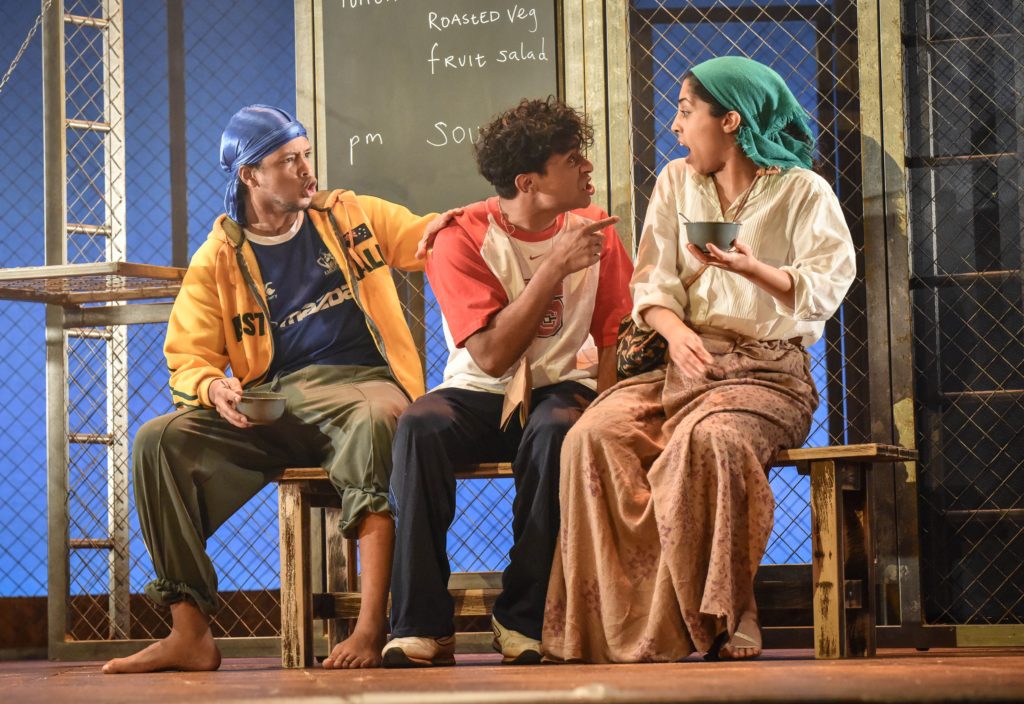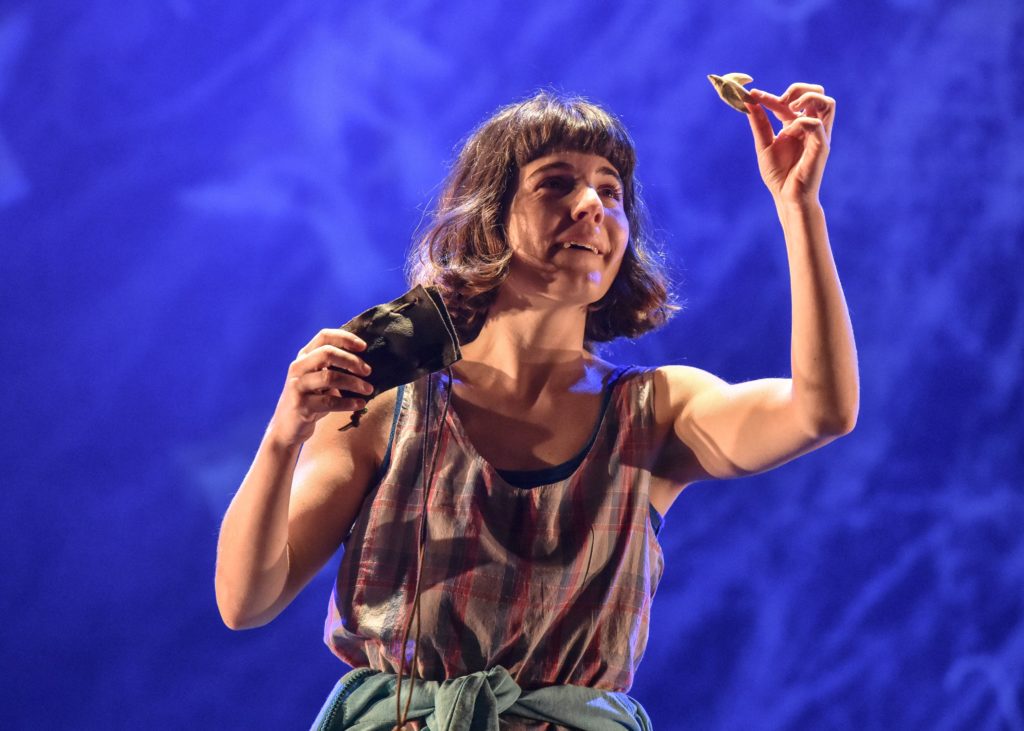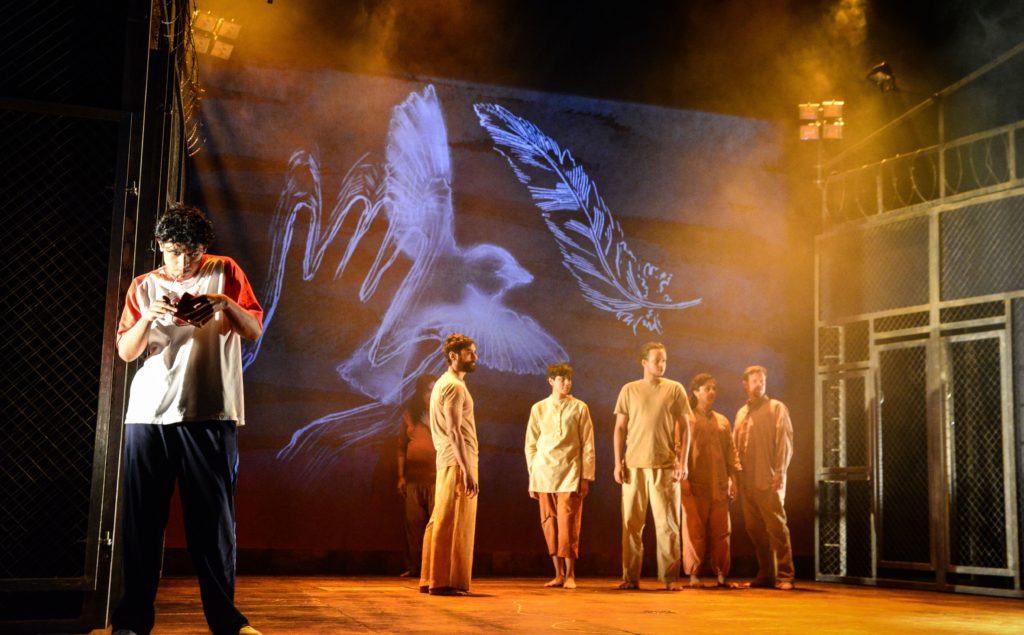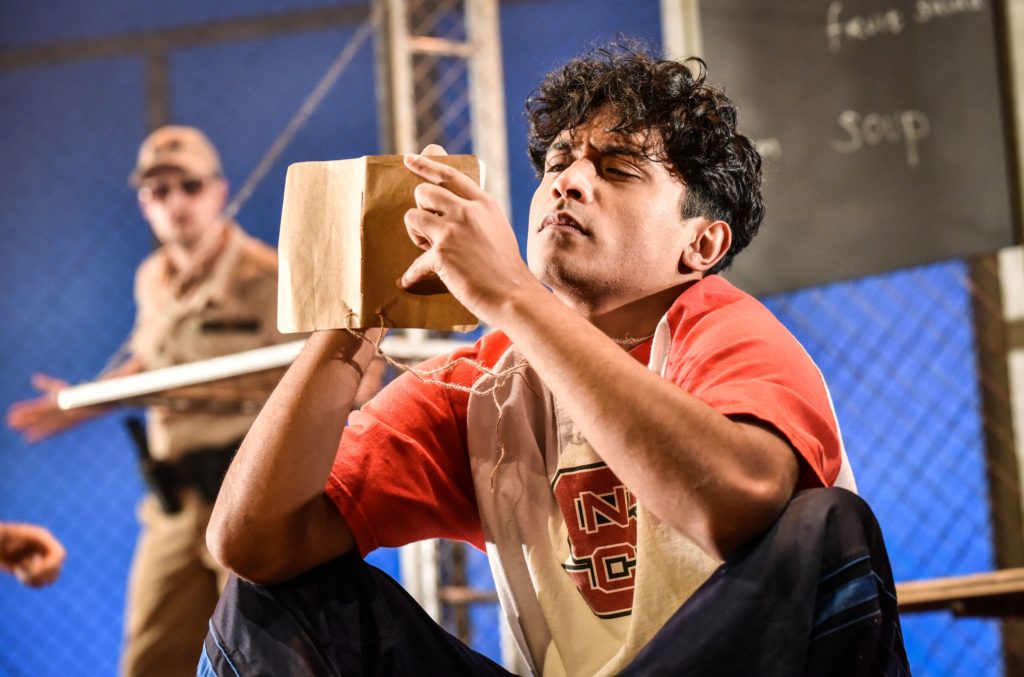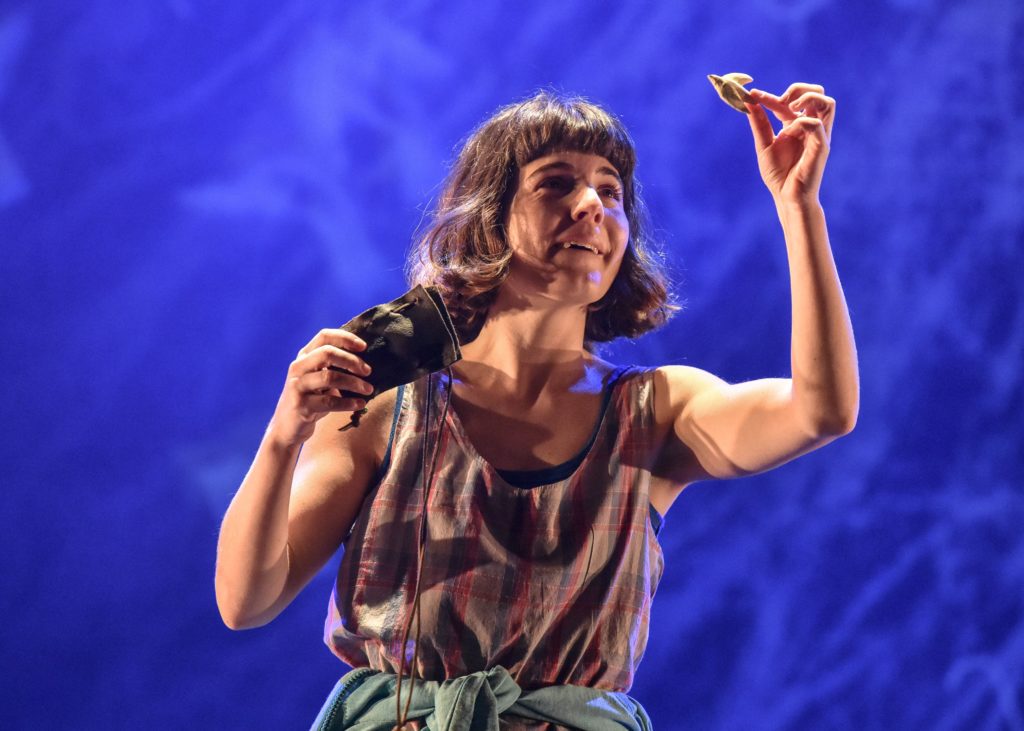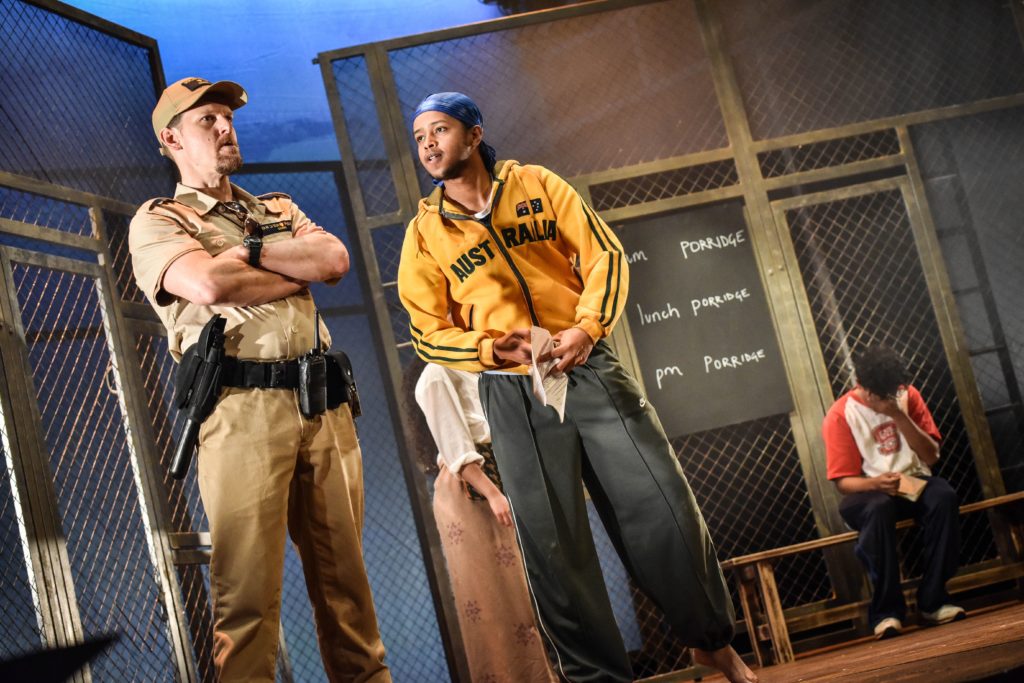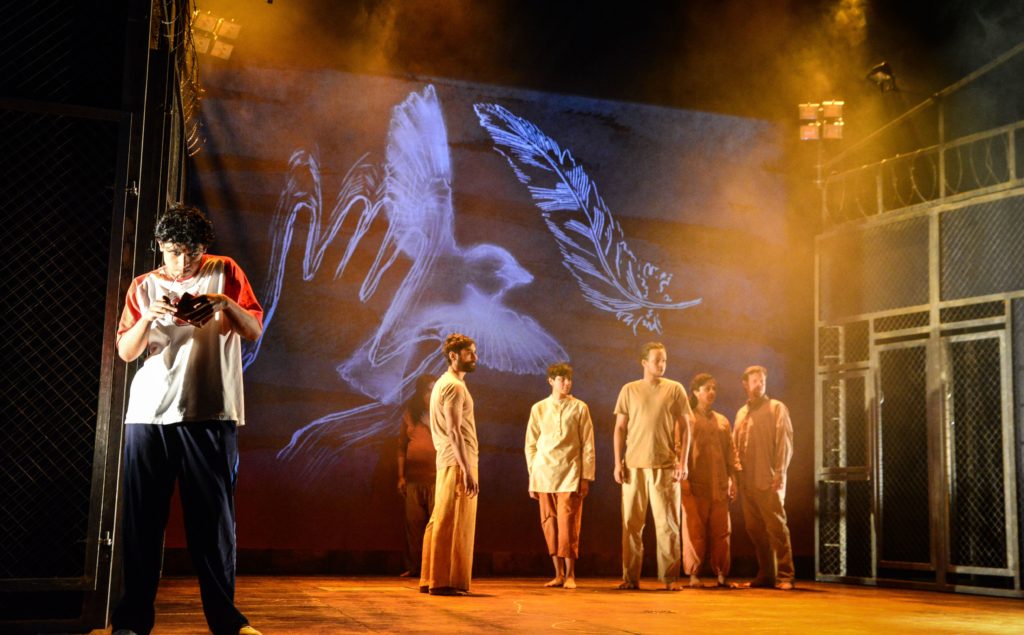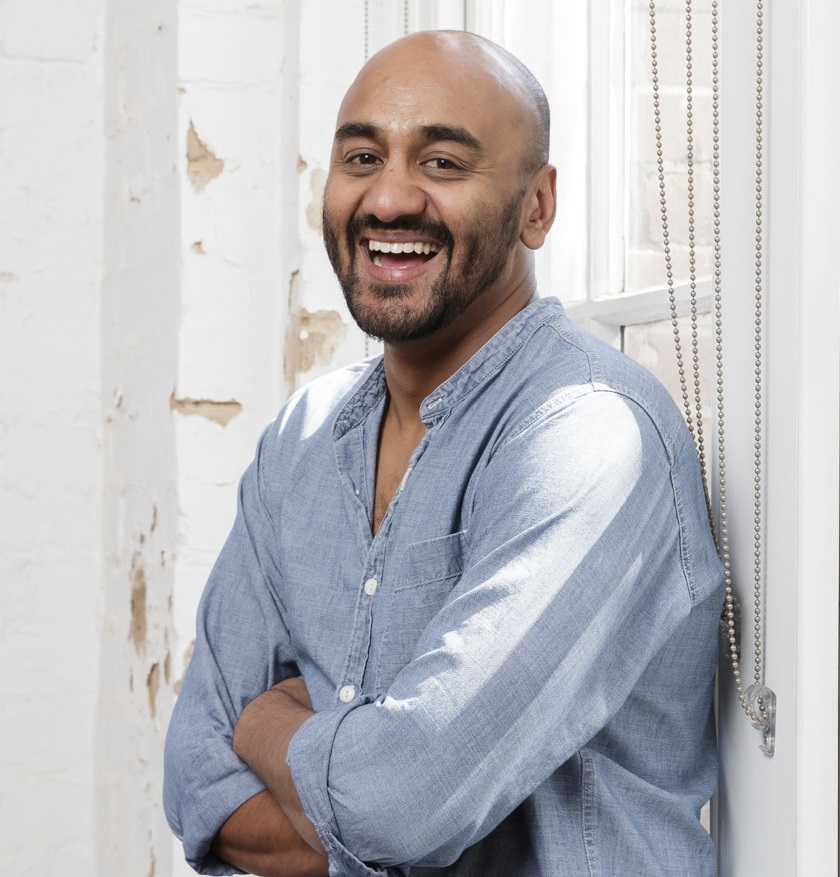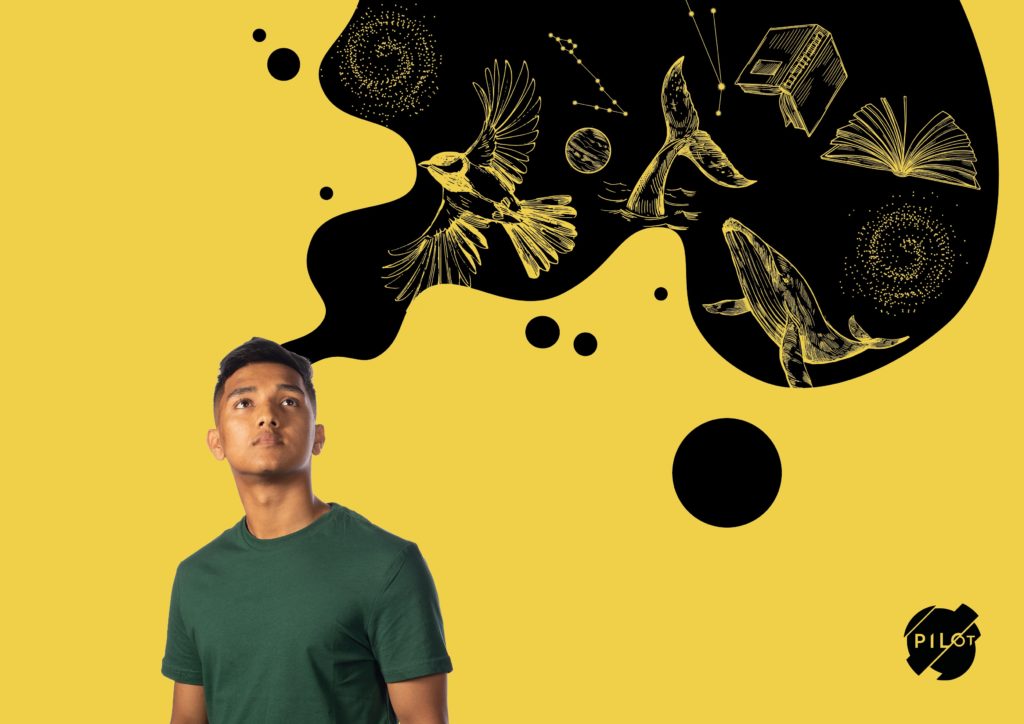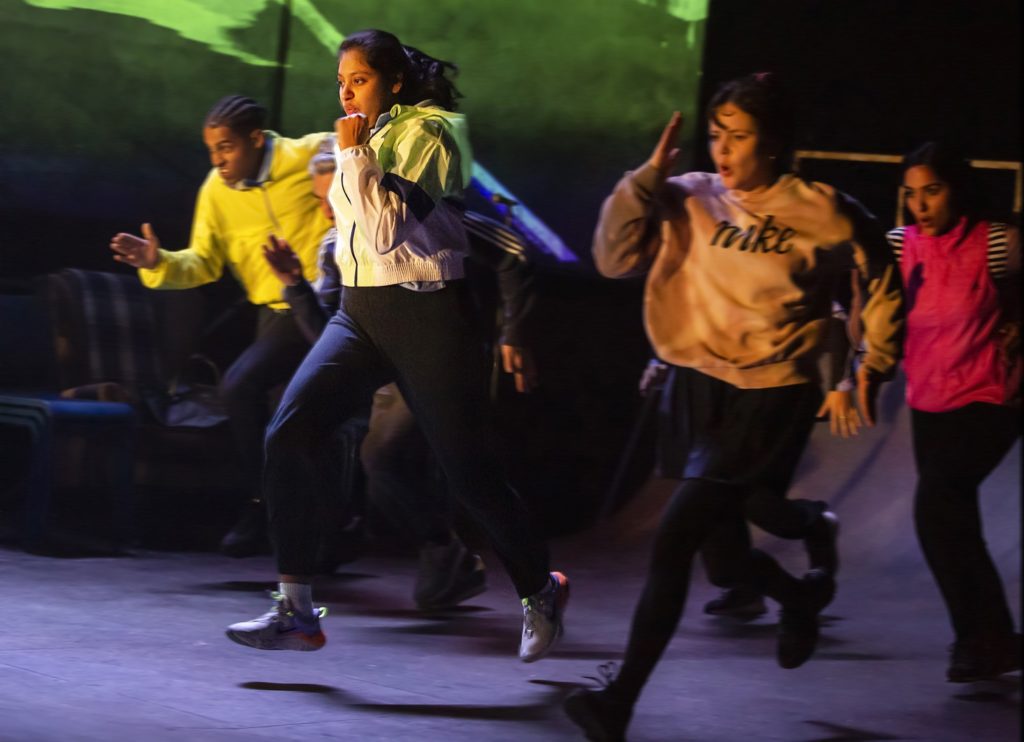
BLACK Country actress and writer Manjeet Mann was feeling directionless.
Her father had died, she was working as a personal trainer as well as treading the boards, but getting out of bed was becoming a struggle. Where had her drive gone?
“I thought, ‘right, I’m going to run a marathon’,” says Manjeet, “I started the 22-week plan, where if I just run the prescribed 20 minutes each day, I’m winning – and I did. I got out of my slump.
“I’m an advocate of how sport can really help your mental health, and that’s when I thought about writing the book.”
The book in question is Manjeet’s multi award-winning debut verse novel, Run, Rebel, now transferred to the stage in Manjeet’s own adaptation, premiered by York company Pilot Theatre in the latest co-production with York Theatre Royal, Mercury Theatre, Colchester, Belgrade Theatre, Coventry, and Derby Theatre.
Children’s author Manjeet, who was a runner in her schooldays, tells the story of schoolgirl Amber Rai, 15, who is trapped by her Punjabi family’s rules, their expectations, her own fears, yet on the running track feels completely free. There the world slows down as her body speeds up.
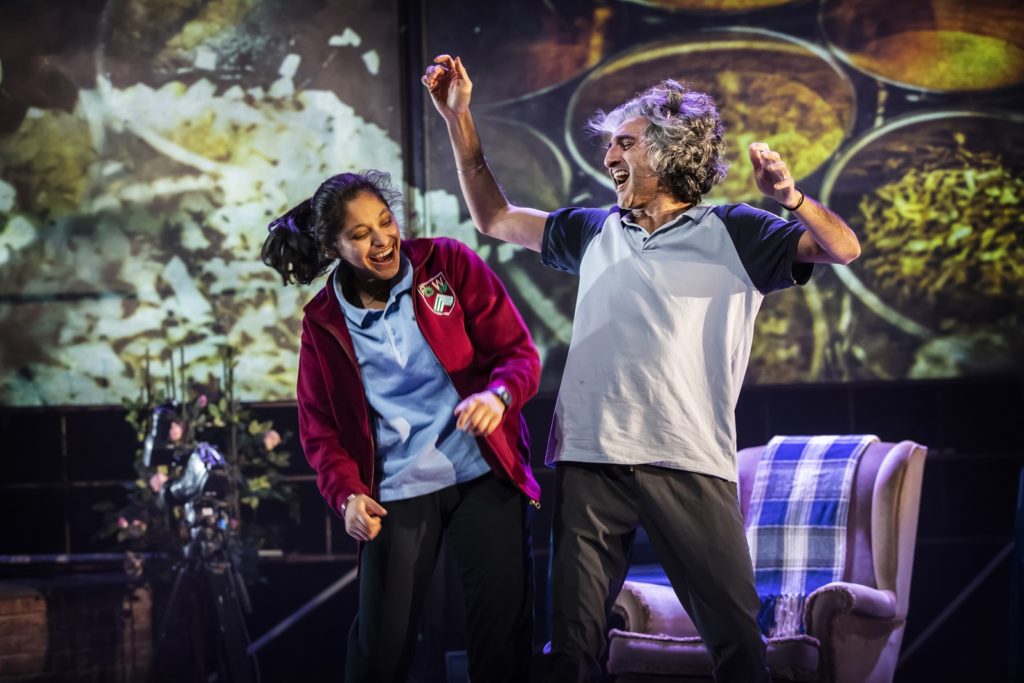
Defining her place in that tangled world, Amber (played by Jessica Kaur) navigates a difficult home life and bullying at school, her sanctuary coming through running and running fast. Now is the time to kick-start a revolution, for her mother, her sister and herself in a play suitable for 11-year-olds and upwards that addresses violence, domestic violence, alcoholism, bullying and discrimination and makes reference to “honour” killings.
“Running is Amber’s one form of escape, and that story partly comes from personal experience at school,” says Manjeet, who now lives by the sea, where she swims every day, weather permitting.
“The other symbolism of running is that life is a marathon, not a sprint, and there will be knockbacks and injuries along the way.”
The name of Amber was chosen with significance too. “I like my main protagonists’ names to have meaning. Amber has a few meanings, depending on what culture you’re from. Amber is a healing stone and a stone for courage too,” says Manjeet, explaining her choice.
She had been equally particular in seeking out Pilot Theatre for the premiere, aware of the impact of their co-productions with the York, Colchester, Coventry and Derby theatres since they forged a partnership in 2018 to develop, produce and present theatre for younger audiences, adapted from young adult novels.
Run, Rebel follows Malorie Blackman’s Noughts & Crosses, Alex Wheatle’s Crongton Knights and Zana Fraillon’s The Bone Sparrow on to the touring stage, this time directed by Tessa Walker with a combination of physical theatre and “mesmerising visuals”.
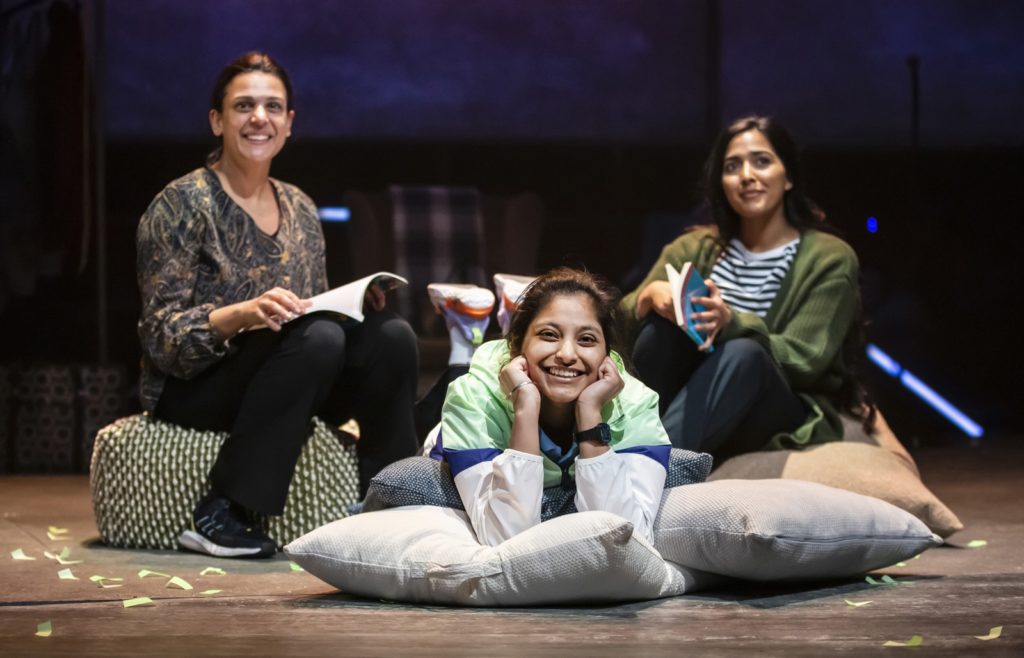
As Pilot Theatre artistic director Esther Richardson reflects: “Our project has sought to bring brand new stories to the stage for young adults and secondary school-age children, introducing them to characters who are living and experiencing the world as they are too in the 2020s.
“The goal has been to inspire an expansion and diversification of the range of work that is made and programmed for this age group, including on the school curriculum: we’ve aimed to enable theatres and schools to offer to young people and their carers and educators, narratives that are fresher and may feel more immediately relevant and relatable to their lives, than might be said of existing set and ‘classic’ texts.”
Hence Manjeet and Tessa’s determination that Pilot “would be the very best company to collaborate with”.
“I’d worked with a Tessa at Birmingham Rep, where I was an associate for a couple of years, when she was a mentor as well as working on projects with me, so we became great friends,” recalls Manjeet, whose two solo tour shows, Flying Solo and A Dangerous Woman, were directed by Tessa.
“The book came out in March 2020 – what a great year to become an author! – and she read it in 2021. I said I could really see it as a play, and after we did research and development with Arts Council funding, she thought, ‘Yes, this does have legs’.”
Unbeknown to Manjeet, Tessa gave a copy of the first draft to Esther Richardson, a draft that Manjeet considered to be “rubbish”. Nevertheless, Esther, who had done a previous R&D project with Manjeet, had “really liked” the author’s second book, 2021’s The Crossing. So far, so good.
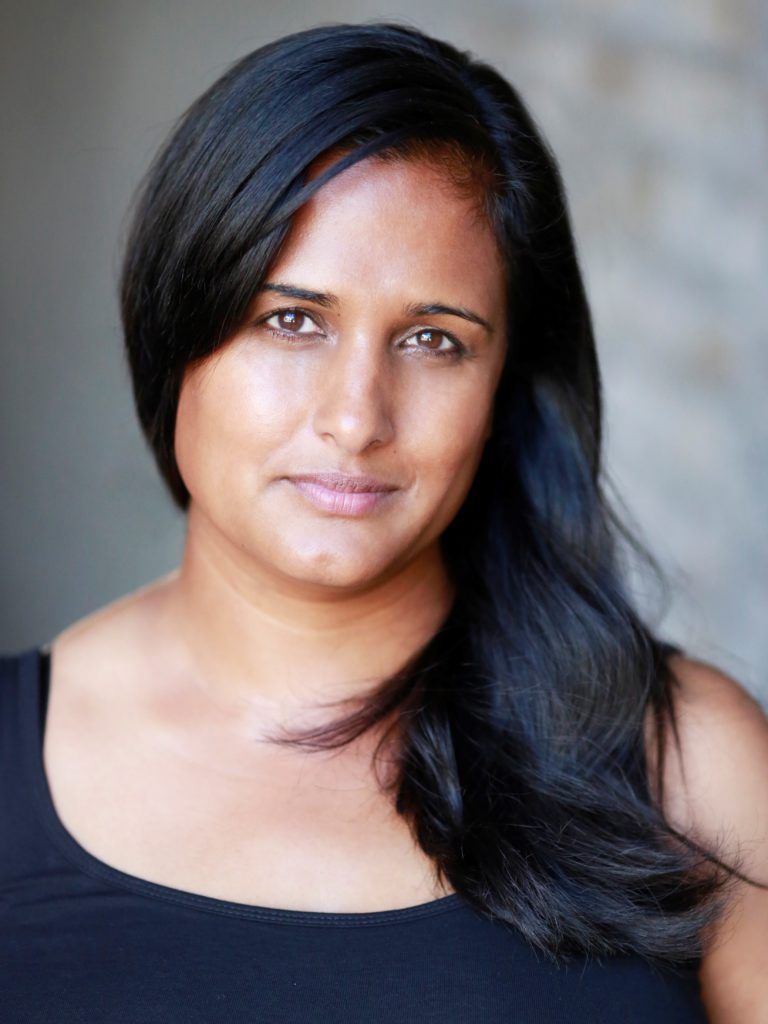
“Then I told her it would only be Pilot that I would want to do Run, Rebel on stage.” A production was born, and Manjeet took on her new writing challenge, adapting a story for the theatre. “It’s been a real learning curve,” she says. “I was naïve going into it, thinking ‘it’s my book, it’ll be easier for me to adapt, right? I’m not reinventing the wheel’. But I was!
“The first draft was very much just the book on stage, and then I started doing something very different with it, and now the play is a mix of the two. I found that things in the book can go in a different order on stage, and what drives a book doesn’t necessarily drive what’s going on on stage.
“With Tessa being not only an amazing director, but a great dramaturg [script editor] too, it became really fun to do, especially when I put the book down, because I knew the story, and just let the play live.”
Has Manjeet participated in the rehearsals? “As an actor, I know what it’s like to have the writer in the room,” she says. “Tessa said, ‘Come in as often as you want’, but I think it can be stifling to be there.
“It’s best to leave it to the directors and actors, so I was only there on the first three days for the readthrough.”
Running is at the core of Run, Rebel. “The cast has been working with movement director Kuldip Singh-Barmi, who’s fabulous, to represent ‘running’ with lots of movement sequences in the performance,” says Manjeet.
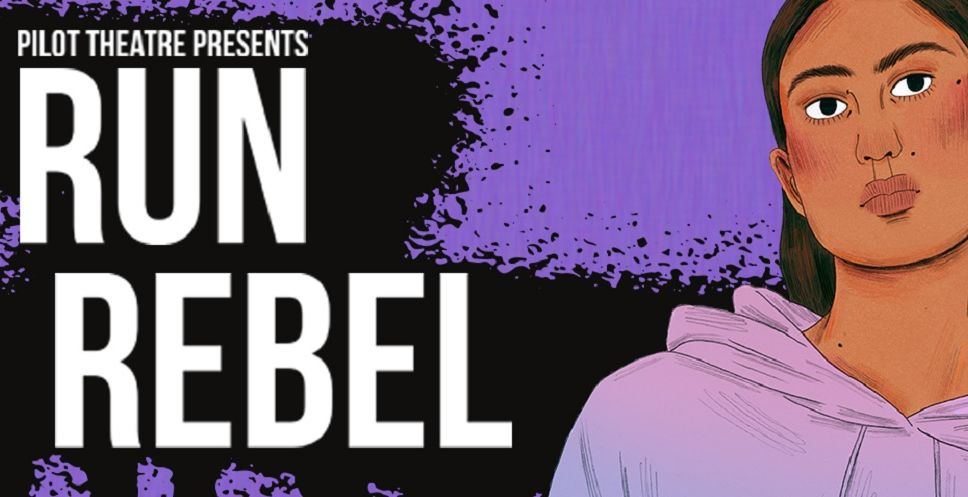
“I remember watching a comedian, Richard Gadd, who ran on a treadmill for the entire show, Monkey See Monkey Do [his story of training for the Man’s Man Final in Mansfield, ‘the ultimate competition of manly masculinity’]. That was awesome! The running in Run, Rebel won’t be too literal; it’s more showing running in a stylistic way, which really works.”
Manjeet’s next book had been scheduled for publication in 2023 until the task of adapting Run, Rebel for Pilot’s premiere took precdence during the past year. “It’s now coming out in June 2024,” she says
“It’s another verse novel, with another underdog , another female protagonist, set in India. She’s a teenager who gets accused of being a witch and then comes back later to take her revenge.
“There are 2,000 deaths a year of women accused of being witches, but the true fuigure is probably higher because they’re not all reported. The women are burnt or hanged from a tree, or witch doctors give them something that will kill them in the end, like having chillis put down their throat. It’s horrific.”
The title? Wait and see: it is yet to be confirmed with the publishers.
Pilot Theatre in Run, Rebel at York Theatre Royal, March 7 to 11, 7pm, Tuesday, Wednesday and Friday; 1pm, Wednesday to Friday matinees; 2pm, Saturday matinee. Box office: 01904 623568 or yorktheatreroyal.co.uk.
Copyright of The Press, York

